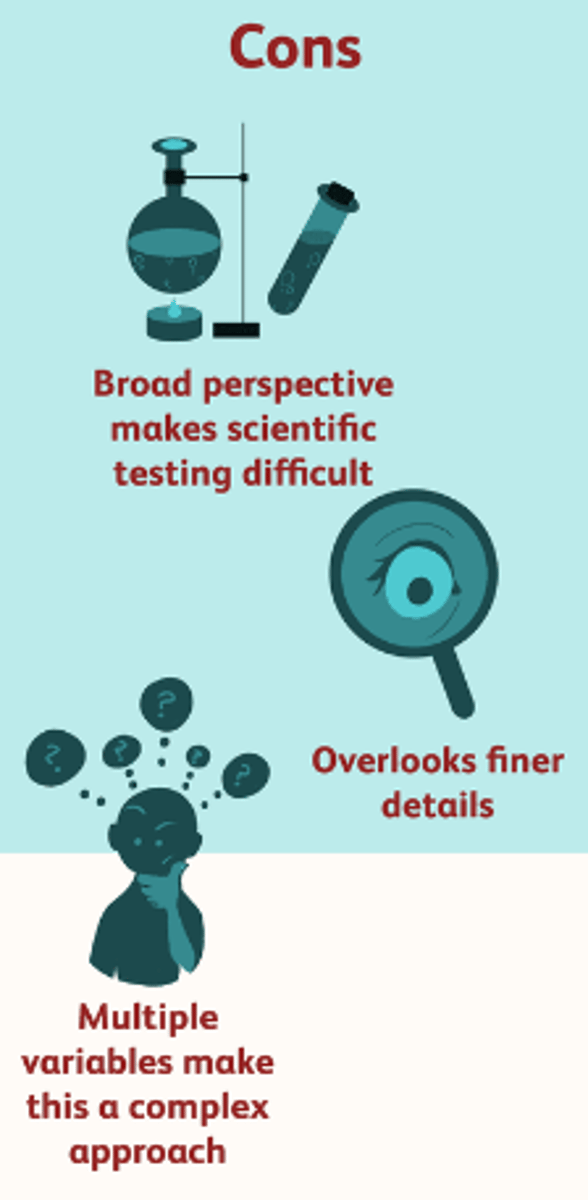I&D 05/06: Reductionism & holism (b) A03
1/4
There's no tags or description
Looks like no tags are added yet.
Name | Mastery | Learn | Test | Matching | Spaced | Call with Kai |
|---|
No analytics yet
Send a link to your students to track their progress
5 Terms
Explain possible strengths of reductionism
* More scientific: focus on empiricism
* Studying basic units of behaviour similar to natural sciences
* Parsimonious – the simplest explanation is often the best.
* More objective: evidence should be observable and unaffected by opinion/subjective interpretation.
* Clarity of understanding, e.g. at the chemical, cellular level
* Better able to isolate cause when studying basic units of behaviour, broken down into elements
Explain possible weaknesses of reductionism
* Reductionism leads to loss of meaning – basic components do not add up to reflect whole experience- loss of validity
* Interaction: simplistic and ignores the complex interaction of many factors
* Loss of context: lose sight of behaviour in context
* Some behaviours, especially social behaviours, can only really be investigated in the holistic context in which they occur
* Other levels: distracts from a more appropriate level of explanation.
Explain possible strengths of holism over reductionism
* Holism involves studying and valuing human experience as a whole, considering meaning, feeling, personal experience / context.
* Only by studying the whole can we really understand human experience
* Types of investigation preferred by humanistic psychologists such as Maslow and Rogers achieve this
* Use of case studies, diaries, interviews - to yield richer, more detailed information - enhances validity
Explain possible weaknesses of holism compared to reductionism
* Less scientific
* Difficult to obtain meaningful information without losing objectivity
* Use of qualitative methods less reliable
* Overly complex: many variables involved

In what ways are models of memory reductionist?
Explain the strengths and limitations of taking a reductionist approach when explaining memory
* In the MSM and WMM the memory system is broken down into a collection of components (memory stores, slave subsystems) and processes (e.g. rehearsal).
* e.g., the MSM views memory as processing information in a linear fashion, one store and process at a time.
Strengths
* By isolating units of the memory system, each can be studied relatively easily in laboratory research.
* e.g., the duration of information in the phonological loop can be studied more precisely and objectively by isolating it from the influences of the visuo-spatial sketchpad.
Limitations
* Models of memory therefore oversimplify a complex system.: memory is probably made up of many components interacting with each other via many processes.
* More recent models (e.g. connectionist) say that memory is ‘greater than the sum of its parts’ because of these interactions.
* e.g., interactions between central executive and phonological loop may mean that memory operates very differently from the impression we get when studying the components in isolation.